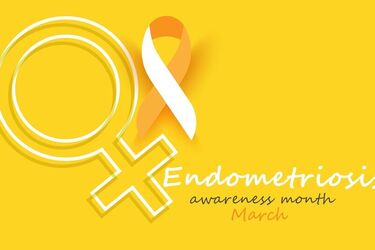Nutrition affects endometriosis: scientists name healthy foods

A plant-based diet can effectively prevent endometriosis, and in the presence of the disease, eliminate severe pain and stop inflammation, according to a new study by American researchers. According to experts, vegetarianism with a high amount of fiber and low levels of trans fats and animal fats affects the hormonal system, reducing estrogen levels, which contributes to the development of the disease.
A plant-based diet as an alternative treatment
Uterine endometriosis is a fairly common disease in which the cells of the endometrium (the inner lining of the uterus) grow outside the uterus. The disease often affects women of reproductive age, characterized by pain in the pelvic area, severe pain during menstruation and during sexual intercourse.
Endometriosis causes fatigue and can lead to infertility. Therapy usually involves hormonal drugs that lead to weight gain, decreased libido, nausea and dizziness.
The effectiveness of hormone therapy is temporary: in 60% of cases, pain recurs after treatment is stopped. Surgical interventions also do not guarantee a complete recovery and can cause complications after repeated procedures.
Because of these side effects, researchers have begun to consider alternative treatments, including diets high in fiber and low in fat. According to one of the latest studies by American scientists, the quality and quantity of dietary fat can affect endometriosis.
Red meat and trans fats aggravate endometriosis
Frequent consumption of trans fats and palmitic acid, which are found in red meat, cow's milk, margarine, and butter, can increase the risk of developing endometriosis. Conversely, omega-3 fatty acids, which are found in nuts, seeds, and oily fish, can protect against the disease. The study showed that a low-fat diet reduces circulating estrogen levels.
According to the researchers' observations, endometriosis is most often observed in women who eat red meat, fatty dairy products, poultry, or ham on a daily basis.
Those who consume these foods no more than once a week are much less likely to get the disease. A low-fat vegetarian diet leads to a decrease in endometriosis pain and an increase in the level of globulin, a protein produced by the liver. Globulin binds sex hormones and limits the effect of estrogen, which has a therapeutic effect on endometriosis.
Fiber, antioxidants and vitamin D: diet for endometriosis
Experts note that in Japan, women are much less likely to develop breast cancer and endometriosis, attributing this to the consumption of fish, seafood, and seaweed, especially fucus vesiculosus. The researchers also emphasize the benefits of vitamin D, low levels of which are associated with an increased risk of endometriosis.
According to the study, taking 50,000 IU of vitamin D every 15 days for 6 months significantly reduced pelvic pain in endometriosis. Antioxidants, including vitamins C and E, have also demonstrated effectiveness.
Since estrogen increases inflammation in endometriosis, experts recommend an anti-inflammatory plant-based diet with minimal fat, high fiber, vitamins, and antioxidants.
Researchers associate the consumption of trans fats and animal fats, palmitic acid, and red meat with an increased risk of developing the disease. Therefore, those at risk should exclude fatty dairy products, red meat, and foods high in trans fats from their diet.
